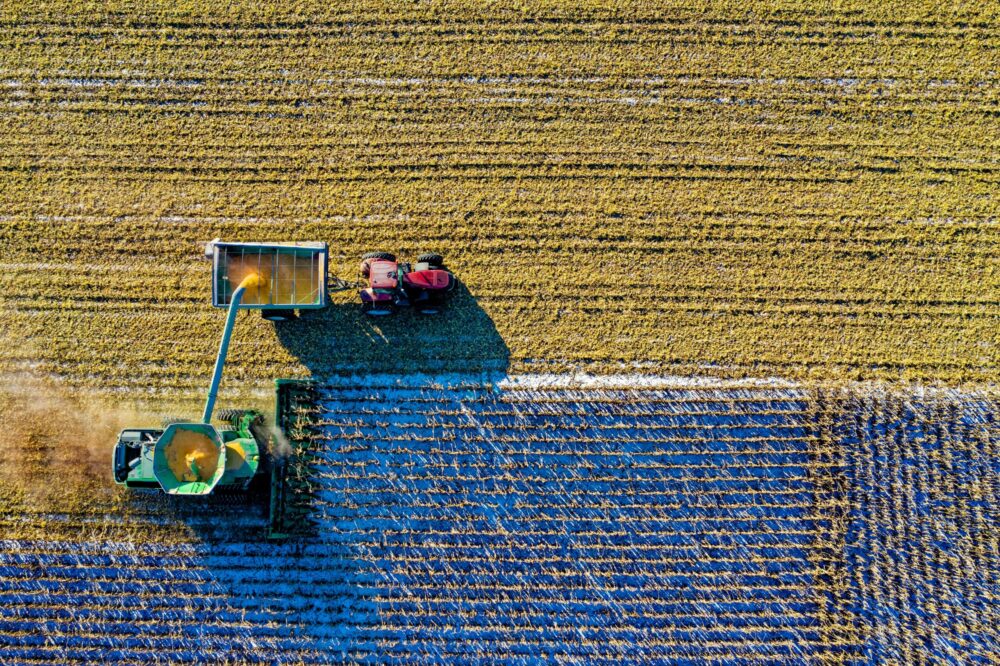OU News
News from The Open University
- Home
- Family farmers say their way of life is an impossible dream when ‘the bread of life is worth less than rusty metal’
Family farmers say their way of life is an impossible dream when ‘the bread of life is worth less than rusty metal’
Posted on • Society and politics

The Pearces have been farming the Fens of eastern England for generations – a region where more than a third of the country’s vegetables are grown, packed and processed. Andy and Rebecca Pearce lease a small family farm in south Lincolnshire with Andy’s parents and brother, on which they grow potatoes, wheat, pulses and sugar beet. They grew peas too until this year, when the unpredictable weather no longer made them viable, says Dan Taylor, Senior Lecturer in Social and Political Thought, The Open University.
Visiting their farm on a fine summer day, the landscape feels idyllic – big skies and black soil, epic fields and waterways. As he drives around in his tractor, Andy keeps a diary of all the wildlife he sees: starlings, sparrows, badgers and buzzards, kestrels, wagtails, hares and deer. It’s a job he and Rebecca talk about with passion and love – but their sense of vocation is clouded with ever-increasing money worries:
Look at the price of grain now: £180 a tonne – it was probably that in the mid-1990s … I can’t think of any other industry that is working on the same price as they were 30 years ago for produce. Yet the inputs have gone up astronomically.
In 2021-22 (the latest government statistics), the average farm household income in England was just £22,200. A 2025 report by the Food, Farming and Countryside Commission found that UK farmers’ incomes have remained stagnant over the past half-century, while costs have recently escalated, as Pearce explains:
In our case, rent is obviously one of the biggest outlays. Chemicals, fertilisers, tractors – you name it, everything has gone up astronomically … The ridiculous costs of machinery, the things you’ve got to do, the amount of red tape you’ve got to fill in, are all going one way.
Read the full article on The Conversation
Picture credit: Tom Fisk on Pexels